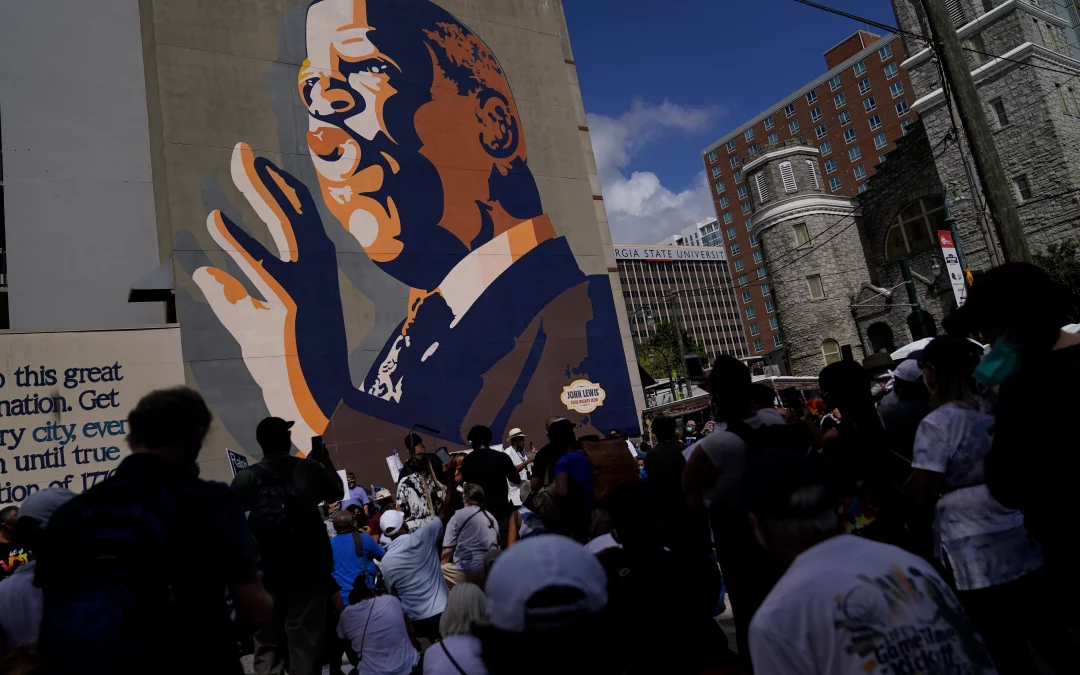
by Bridget Moix | Mar 23, 2022 | Commentary, Headline News, Social Justice |
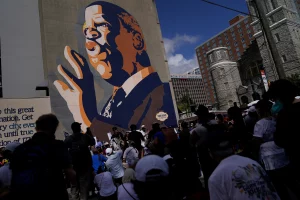
(RNS) — Millions of Texas voters headed to the polls earlier this month in the state’s primary elections — but the democratic system they participated in is markedly different from the recent past.
After last year’s enactment of sweeping voting restrictions by the Texas Statehouse, the primaries served as a first chance to see how damaging these laws would truly be. It’s too soon to get the full picture, but early signs are ominous: Roughly 30% of absentee ballots cast were rejected by election officials, a massive increase from the 2020 general election when fewer than 1% of ballots met the same fate.
Regrettably, this is likely a mere preview of what’s to come for millions of voters across the nation. In 2021, at least 19 states passed 34 laws restricting access to voting. This includes limiting mail balloting, purging voter rolls and reducing poll hours on Election Day. More than 440 bills with provisions that restrict voting access were introduced in 49 states in the 2021 legislative sessions and more are certain to come.
This isn’t just about who will or will not be able to vote in elections. When combined with the toxic partisanship that is dividing our country — and the fact that large portions of our population and numerous elected leaders still cast doubt on the outcome of the 2020 presidential election — an undeniable truth emerges: Our democracy is in deep peril.
As the first registered religious lobbying organization in the United States, we at the Friends Committee on National Legislation believe civic engagement of all people is vital to the democratic life of our country. This begins with the fundamental right to vote. Quakers and other people of faith understand that voting is not just a basic civic right but a moral requirement. At the center of our faith is the unwavering belief in and commitment to the equality and dignity of every human being. Safeguarding the integrity of the voting process for all people and removing, not raising, barriers to the full participation of disenfranchised people in our electoral process is vital to our democracy and our integrity as a nation.
What happened in Texas and in other states violates our democratic principles and our moral conscience. We know voters of color are most directly impacted by efforts to suppress their voice, both historically and today. These communities are also leading the voting rights movement, often at great personal risk. This is only the latest chapter in a long struggle against disenfranchisement of Black and brown communities in the United States. Our faith calls us to help uproot racism and discrimination wherever it exists, including at the ballot box, and to help transform our nation into the beloved community we envision.
This call to protect elections as the bedrock of democracy is not new. Earlier this year, in anticipation of Martin Luther King Day, advocates launched a large scale effort to pass the Freedom to Vote: John R. Lewis Act. This bill would revitalize American democracy by making elections more accessible, secure and transparent, and by ensuring that states do not pass discriminatory laws that restrict access to the ballot box. The effort failed due to a filibuster but has not been abandoned.
Even as Congress rightly focuses on the crisis in Ukraine and the president’s economic agenda, voting rights must remain a top priority for the nation. Currently, efforts to reform the Electoral Count Act of 1887 have real momentum in Congress, with a bipartisan group of senators working to find common ground.
This alone will not end all voter suppression, but it could be a successful vehicle for additional necessary reforms, including amendments to prevent state legislatures from overturning election results, making Election Day a holiday, supporting small-donor financing, instituting gerrymandering reforms or making absentee/vote-by-mail easier.
And despite the failed vote, senators should keep pushing for the Freedom to Vote: John R. Lewis Act. History has taught us the advancement of voting rights has never come quickly or easily — and raising the moral conscience of our nation on these issues is an important role of the faith community.
Quakers believe our democracy can live up to its potential only if the government safeguards the integrity of the voting process and ensures full participation for all people. The push for voting rights is a moral imperative and requires the urgent passage of nationwide voting rights legislation. Advocates and people of faith won’t rest until real action is taken. The Senate shouldn’t either.
(Bridget Moix is the fifth general secretary of the Friends Committee on National Legislation in its 80-year history. She brings with her more than 25 years of work in peacebuilding. Moix also leads two other Quaker organizations: Friends Place on Capitol Hill and the FCNL Education Fund. The views expressed in this commentary do not necessarily reflect those of Religion News Service.)

by Mark Silk, RNS | Mar 15, 2022 | Commentary, Headline News, Social Justice |

(RNS) — The middle of a war that is grabbing the world’s attention may not be the best time to reflect on climate change. But the latest report from the U.N.’s Intergovernmental Panel on Climate Change shows that one crisis is not taking a pause while we settle another.
The news from this sixth IPCC assessment, unsurprisingly, is not good.
As The New York Times summarized it, “The dangers of climate change are mounting so rapidly that they could soon overwhelm the ability of both nature and humanity to adapt, creating a harrowing future in which floods, fires and famine displace millions, species disappear and the planet is irreversibly damaged.”
Nowhere does the future appear more harrowing than for the inhabitants of small islands, from the Caribbean to the South Pacific, whom rising seas threaten to literally wipe off the map. But as imminent as the physical danger is, how the inhabitants reckon with what they are facing is often at odds with the scientific understanding.
In a chapter on small islands, the IPCC report to its credit recognizes that “material and non-material symbols that express collective meaning” are “often overlooked in adaptation policies and plans.”
As it happens, many of these communities are composed largely of Bible-believing Christians, and what they believe matters because “(e)xternally-driven adaptation efforts in rural small-island communities that exclude community priorities, ignore or undervalue IKLK (indigenous knowledge and local knowledge), and are based on secular western/global worldviews, are often less successful.”
In other words, it is important to know where the affected communities are coming from — not least, religiously.
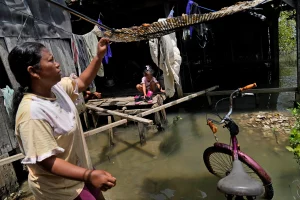
Take the outer Fijian island of Ono. When Amanda Bertana, a sociologist at Southern Connecticut State University, went there to study relocation plans, she found a devout Christian population that believes that rising sea levels are the result of God’s disapproval of their immoral behavior and, at the same time, that they won’t be flooded into oblivion.
Why not? Because in the ninth chapter of the Bible’s Book of Genesis, God promises Noah after the waters recede, “Never again will all life be destroyed by the waters of the flood.”
For Bertana, this rejection of the secular narrative of coastal degradation is “a form of emotional self-preservation” — one, to be sure, that undermines efforts to get them safely relocated. This comforting promise not to flood the Earth again has been widely embraced among sea-level-threatened islanders.
But University of Oxford geographer Hannah Fair, also working in the South Pacific, has found alternative climate-related interpretations of the Noah story.
Some Fijians see in Noah a model for disaster preparation. Others, in a less orthodox interpretation, regard Noah as a villain who used his wealth for self-protection and those who drowned as victims.
Meanwhile, on the Caribbean island of Trinidad, University of Texas anthropologist Brent Crosson found that the Afro-Christian denomination of Spiritual Baptists has adopted a biblical understanding of environmental destruction based on a (mis-)reading of Psalm 24.
That psalm begins, in the King James Version, “The Earth is the Lord’s.” But since the English creole spoken in Trinidad does not employ the possessive apostrophe-s, the Spiritual Baptists say, “The Earth is the Lord.”
This has led them to see the Earth as God’s body, suffering harm from human activity. That includes the activity of oil companies, which despite providing Trinidad with significant wealth nevertheless are considered vampires consuming the planet’s lifeblood.
Writing in a forthcoming collection of essays, “Climate Politics and the Power of Religion,” Crosson sees in this interpretation of Scripture an “ethics of injury” that “forms the basis not only for empathy but for new legal regimes that, despite many challenges in implementation, define the Earth as a person with rights.”
Those who track religion and climate change tend to divide the world into Pope Francis-type progressives and white evangelical deniers. But there are more environmental theologies in heaven and earth, dear reader, than are dreamt of in their philosophies.
(The views expressed in this opinion piece do not necessarily reflect those of Religion News Service.)
READ THIS STORY AT RELIGIONNEWS.COM
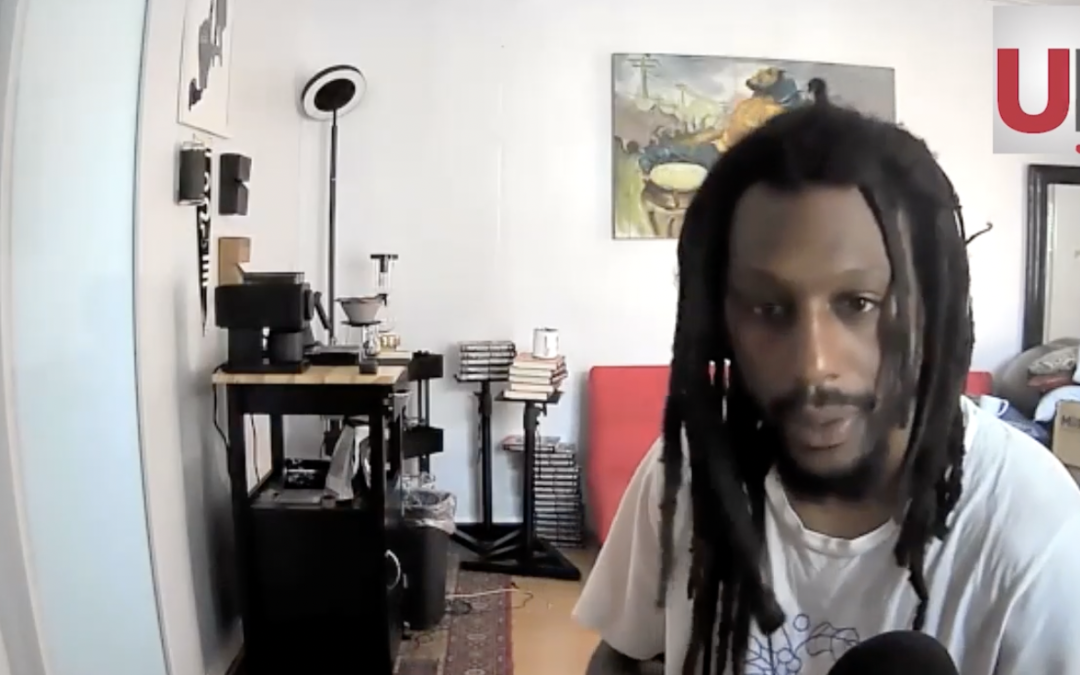
by Maina Mwaura, Urban Faith Contributing Writer | Mar 9, 2022 | Commentary, Headline News, Social Justice |
It is clear to see that brokenness pervades our world as we look at the news headlines. We encounter the same brokenness in our communities and households. But when we recognize our ability to impact the culture that surrounds us in the same way we are impacted by it. UrbanFaith sat down with artist, entrepreneur, and now author PROPAGANDA to discuss his new book Terraform: Building a Better World. Full interview is above, more information on the book is below.
In this deep, challenging, and thoughtful book, Propaganda looks at the ways in which our world is broken. Using the metaphor of terraforming—creating a livable world out of an inhospitable one—he shows how we can begin to reshape our homes, friendships, communities, and politics. In this transformative time—when we are redefining what a truly just and equitable world looks like, and reflecting on the work that needs to be done both in our spiritual and secular lives—Propaganda rallies readers to create that just world. He sheds light on how nefarious origin stories have skewed our views of ourselves and others and allowed gross injustices, and demonstrates how great storytelling and excellent art can create and shape new perspectives of the world and make all of us better.
by Omar Suleiman, RNS | Feb 8, 2022 | Commentary, Headline News, Social Justice |
(RNS) — Over the past week, much of the world was gripped by the heartbreaking story of Rayan, a 5-year-old boy who had plunged 104 feet into a well in Morocco. For five days thousands of people went to Tamorot in northern Morocco to help and pray, while around the world hundreds of millions followed closely. On Saturday evening (Feb. 5), hopes rose as he was pulled out of the deep shaft, but the jubilation was short-lived as the news broke within minutes that he had passed away.
Images of Rayan, his grieving mother and the heroic rescue effort united much of the world around what practically no one could find disagreeable: the hope that an innocent child caught in devastating circumstances could be reunited in health and safety with his worried parents.
For many of us as Rayan departed this world, we still pray for that reunion in the next life, and are moved to contribute to his grieving family in any way that we can.
For readers of Scripture, Rayan’s time in the well brought to mind the story of Joseph, the son of Jacob (peace be upon them), in the Quran, similar to that of the Bible. In the Quran, however, Joseph’s time in the well is a focal point of an entire chapter that offers comfort to those facing a trial.
Rayan, certainly, was not thrown into the Moroccan well by envious brothers, as Joseph was. Poor infrastructure seems to have been the main reason for his death, and the fact that no one was to blame made it easy to gather everyone in sympathy.
But I can’t help but wonder while watching this unfold how differently the story of Rayan would be told, or if it would be told at all, had he been a child stuck in a crater caused by an airstrike from a military drone. Or if he was a refugee who had slipped to his death in a camp.
Figures are not for a blameless child to die due to unnecessary war. Some 1,600 children died or were maimed in Afghanistan every year for two decades, according to Save the Children, which also estimates that 25 children die or are injured each day in conflicts around the world.
Cruelty to a child is one of the few things that can still elicit a pure human reaction from most of us. It’s why the mother of Emmett Till wanted to leave the casket open after her son’s brutal murder. In her own words, “I wanted the world to see what they did to my boy.” By doing so, she sparked the civil rights movement.
It’s why the image of baby Alan Kurdi, a Syrian refugee who washed ashore at a Turkish resort, shocked the world in a way that statistics never could. It’s why the image of over 60 Palestinian children on the cover of The New York Times did more to humanize the plight of the Palestinian people than almost all the coverage of the bombardment of Gaza combined. And it’s why the image of young Jakelin Caal, who died trying to cross the border into the United States, shook so many of us to our core.
We despise the unjust death of children, but when children die in war we feel complicit in that injustice, either through our participation in harmful policies or silence about the consequences. Many of the powers directly responsible for children’s deaths are aware of our disgust and will try to thwart coverage or sympathy that may lead to direct challenges of their use of force.
We’re told to sympathize with the child who resembles Joseph. It’s far harder for us to see ourselves as the brothers who threw him into the well.
While the brothers of Joseph were driven by envy, we’re driven by greed or apathy. The reason doesn’t matter to the child. Our repentance is to do what we can for that child, and the other children who need our help.
Rayan was a beautiful, innocent child who brought out the best of his countrymen, and the purest of sentiments from around the world. How do we then reckon with the harm of so many unholy wars and man-made tragedies in which so many beautiful children die in ugly ways? What is the work we need to do so that they may live in dignity and calm?
(The views expressed in this opinion piece do not necessarily reflect those of Religion News Service.)
by Mwikali Munyao | Jan 24, 2022 | Headline News, Prayers & Devotionals, Social Justice |
Deuteronomy 16:18-20
18 “Appoint judges and officials for yourselves from each of your tribes in all the towns the Lord your God is giving you. They must judge the people fairly.
19 You must never twist justice or show partiality. Never accept a bribe, for bribes blind the eyes of the wise and corrupt the decisions of the godly.
20 Let true justice prevail, so you may live and occupy the land that the Lord your God is giving you.
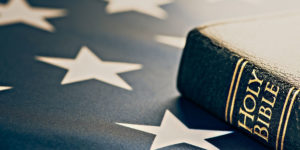 In a world where everyone has an opinion of what justice is, and what is wrong seems to be appealing and receiving the most media attention, as believers, it is very encouraging to know God’s pure intention and desire for what true justice is.
In a world where everyone has an opinion of what justice is, and what is wrong seems to be appealing and receiving the most media attention, as believers, it is very encouraging to know God’s pure intention and desire for what true justice is.
In Deuteronomy 16: 18-20 Living Bible Translation there are specific takeaways that are listed to ensure Justice prevails and there is success in the land
- Appointing judges and administrative officials to administer justice in every part of the land
- Not twisting justice to benefit the rich
- Never accepting bribes, because bribes blind the eyes of the wisest and corrupt their decisions
It is important to understand that God cares about what happens to the land we live in. It is a form of great stewardship, when we are able to appoint officials who will govern with wisdom and counsel.
True Justice in God’s eyes, does not involve buying favors, classism or oppression, as we often see in various governments in our current world. He desires for fruitfulness and peace, while those in power, serve in diligence, grace, and integrity for the good of the people.
This week, pray for elected officials. Let us ask God to touch the hearts and minds of those who have the honor to serve at any capacity in our current government. Let us pray for a heart of conviction, wisdom and the desire to do what is right for the sake of the people.
We have a duty as believers to pray and when the opportunity arises, appoint and elect the right officials to rule in our land so that we experience the blessings of peace and prosperity. We cannot give up hope, regardless of what is happening, or ignore the responsibility we have in picking right leaders. God cares for us, His love is unwavering and this year will not be any different. He will guide us to make the right decisions to elect leaders who will move our nation forward. Peace and stability is a great blessing to have, and pursuing pure justice will pave the way for that to happen.
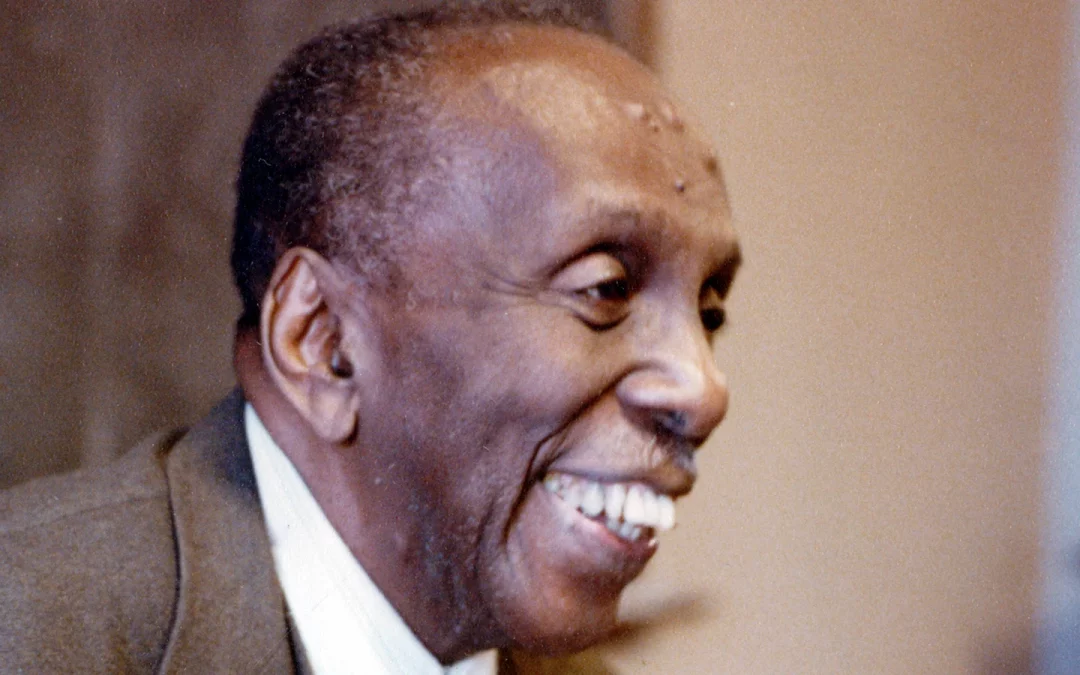
by Adelle M. Banks, RNS | Jan 13, 2022 | Headline News, Social Justice |
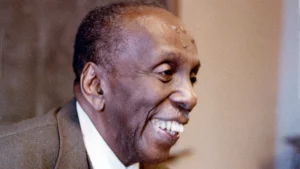
Howard Thurman was a theologian and mystic who taught at both Howard University and Boston University. Photo courtesy of Emory University
‘(RNS) — Hartford International University for Religion and Peace has launched its new Howard Thurman Center for Justice and Transformational Ministry, an expansion of its longtime Black Ministries Program, named for the 20th-century theologian and mystic.
Joel N. Lohr, president of the university that previously was known as Hartford Seminary, said the center fits into the school’s strategic plan that focuses on peace building.
“It was my hope that this would be a moment to grow, to envision a center that would do more to support students, justice and ministry,” he said at a Tuesday (Jan. 11) webinar that officially launched the center and was attended by alumni, as well as Thurman’s grandchildren.
The center, which is a $2 million project, is supported by a $1 million grant from the Lilly Endowment Inc. The grant will support a resource center, pay for a Black church scholar and assure that students will not be excluded if they cannot afford the coursework.
The HTC will be led by Bishop Benjamin Watts, who will also continue to lead the Black Ministries Program founded in 1982 by the late Christian Methodist Episcopal Senior Bishop Thomas Hoyt.
“The center’s North Star will be Thurman’s insistence on social justice and responsibility within a spiritual framework,” said Watts in an introductory video during the launch event.
In live comments, Watts spoke of plans to move beyond the center’s regional focus in its two-year certificate course and to become a national model of theological training for pastors and lay people. He said the center also wants to expand the training to include health, wellness and trauma education.
“Those of us of faith have to find ways to continually engage with other persons, and particularly our youth who seem to be falling away from our worship centers,” he said.
During a live interview, Watts asked the Rev. Walter Fluker, editor of “The Papers of Howard Washington Thurman,” to describe the center’s namesake, who died in 1981.
“Thurman, like great mystics — the Dalai Lama, Bishop Tutu — if you meet them, they’re always laughing, because they understand the deep, tragic sense of life and it’s only because of their deep sense of the tragic that they’re able to look at the world and laugh at the world,” said Fluker, a professor at Emory University’s Candler School of Theology. ”To meet Howard Thurman is to meet not a detached mystic unconcerned about the affairs of the world, but a very earthly human being.”
The launch event also featured video comments from the Rev. Andrew Young, a longtime civil rights activist who worked with the Rev. Martin Luther King Jr. and is an alumnus of the Connecticut university, and an interview with former Spelman College President Beverly Daniel Tatum, who earned a master’s in religious studies from the school.
READ THIS STORY AT RELIGIONNEWS.COM







 In a world where everyone has an opinion of what justice is, and what is wrong seems to be appealing and receiving the most media attention, as believers, it is very encouraging to know God’s pure intention and desire for what true justice is.
In a world where everyone has an opinion of what justice is, and what is wrong seems to be appealing and receiving the most media attention, as believers, it is very encouraging to know God’s pure intention and desire for what true justice is.
